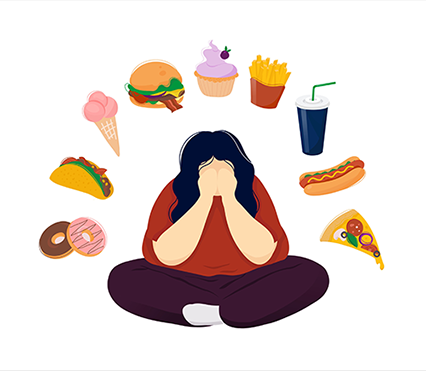Ultra-processed food intake, obesity, and mood disorders: An epidemiological study from the National Health and Nutrition Examination Survey (NHANES) 2005 to 2018 data
The rising consumption of ultra-processed foods (UPFs) has emerged as a major dietary trend with growing concerns about their link to obesity and mental health conditions. This study by Ozojide et al. (2025) examined the relationship between UPF intake and the co-occurrence of obesity and depression among adults in the United States, utilizing nationally representative data. Researchers analyzed data from the 2005–2018 cycles of the National Health and Nutrition Examination Survey (NHANES), focusing on a weighted sample representing nearly 98 million U.S. adults (n = 16,976). The study examined the relationships between UPF intake (expressed as a percentage of total energy intake), obesity (defined as a BMI ≥ 30), and depression (as indicated by a PHQ-9 score ≥ 10). The average UPF intake was found to constitute 22.36% of total energy intake, after adjusting for potential confounding factors (such as age, sex, weight, physical activity, and race/ethnicity). Higher UPF consumption was significantly associated with greater odds of depression. However, no significant link was found between UPF intake and obesity. Further analysis revealed a positive association between UPF intake and depression severity (PHQ-9 scores). UPF intake patterns varied across different demographic and health subgroups. Higher consumption of ultra-processed foods is linked to more severe depressive symptoms but not to obesity after adjusting for various factors. These results highlight the potential psychological risks associated with UPF-heavy diets and support public health initiatives aimed at reducing UPF consumption to enhance mental well-being. [NPID: Body mass index, BMI, depression, dietary patterns, mental health, NHANES, obesity, ultra-processed food]
Year: 2025

 Navigation
Navigation










